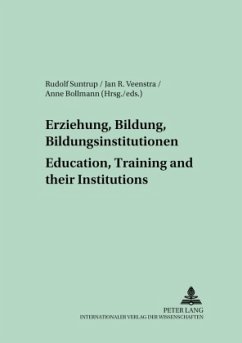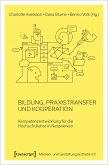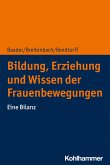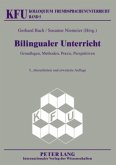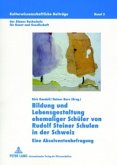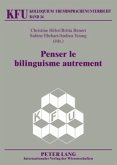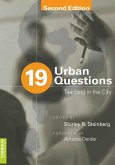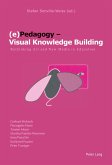Erziehung, Bildung und Bildungsinstitutionen sind für den Aufschwung, den Europa in Spätmittelalter und Früher Neuzeit nimmt, von zentraler Bedeutung. Die ungeheuren Fortschritte, die europäische Geistes- und Naturwissenschaft im Laufe der Neuzeit macht, haben hier ihre Wurzeln, und Entsprechendes gilt für die Formierung einer breiten Schicht laikaler wie geistlicher, bürgerlicher und adeliger Eliten. Dieser Tagungsband vereint für den Zeitraum vom 15. bis zum frühen 17. Jahrhundert 13 Fallstudien in englischer und deutscher Sprache zur einleitend vorgestellten Rahmenthematik in vier Themenbereichen: Schulunterricht und die Unterrichtslektüre, die religiöse Unterweisung von Nonnen, von semireligiös lebenden Laien und von Theologen, Reflexionen der Ideale humanistischer Bildung und Erziehung in Briefen und Briefberichten der Frühen Neuzeit sowie verschiedene Institutionen (den Observantenorden, die Windesheimer Kongregation, den Weseler Stadtrat) unter dem thematischen Aspekt der durch sie oder an ihnen vollzogenen Erziehung und Bildung.
Education and educational institutions in late medieval and early modern Europe have been of fundamental importance for the progress of science and scholarship as well as for the development and instruction of various classes whether lay or clerical, bourgeois or noble. This volume of proceedings brings together thirteen case studies (in English and in German) divided over four thematic areas: schooling and instructional literature; the education of nuns, laymen and theologians; humanist education and letter writing; and educational institutions (such as the Observant Franciscans, the Congregation of Windesheim, and the urban council of Wesel).
Education and educational institutions in late medieval and early modern Europe have been of fundamental importance for the progress of science and scholarship as well as for the development and instruction of various classes whether lay or clerical, bourgeois or noble. This volume of proceedings brings together thirteen case studies (in English and in German) divided over four thematic areas: schooling and instructional literature; the education of nuns, laymen and theologians; humanist education and letter writing; and educational institutions (such as the Observant Franciscans, the Congregation of Windesheim, and the urban council of Wesel).

